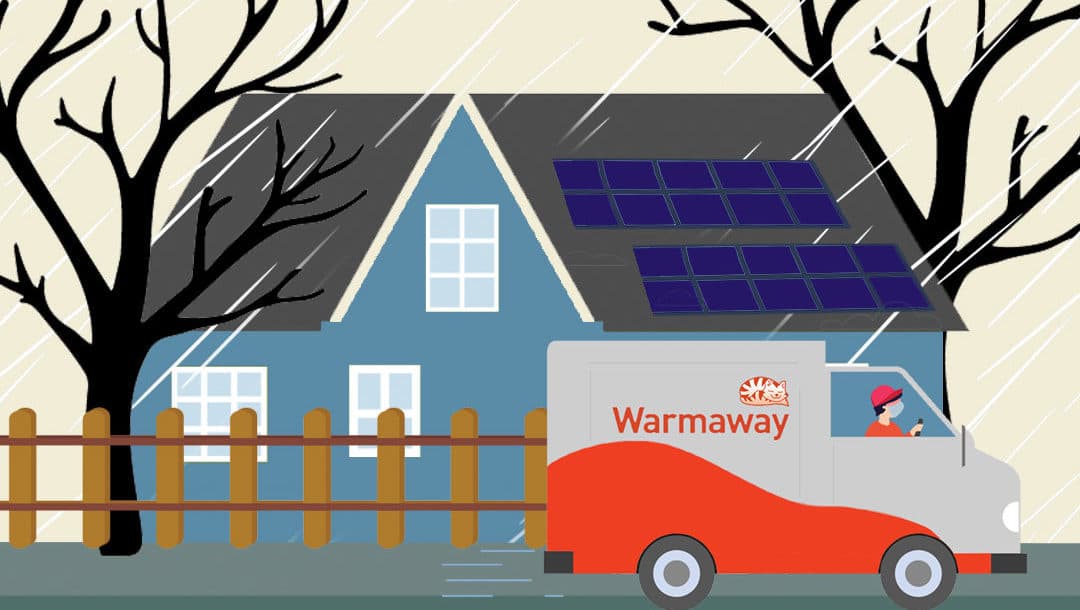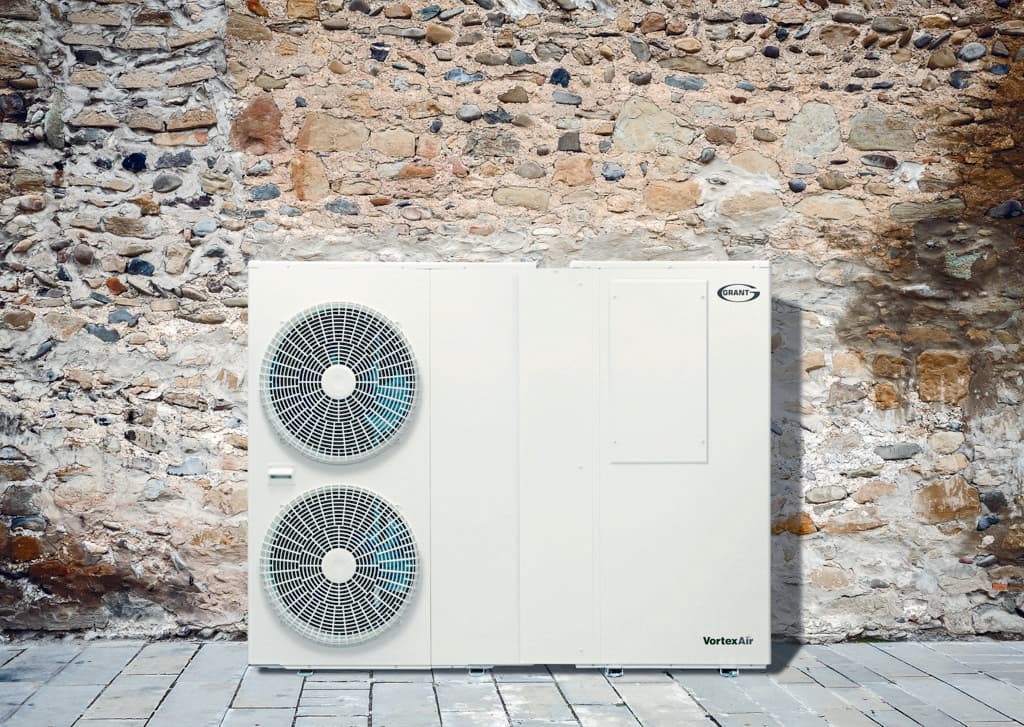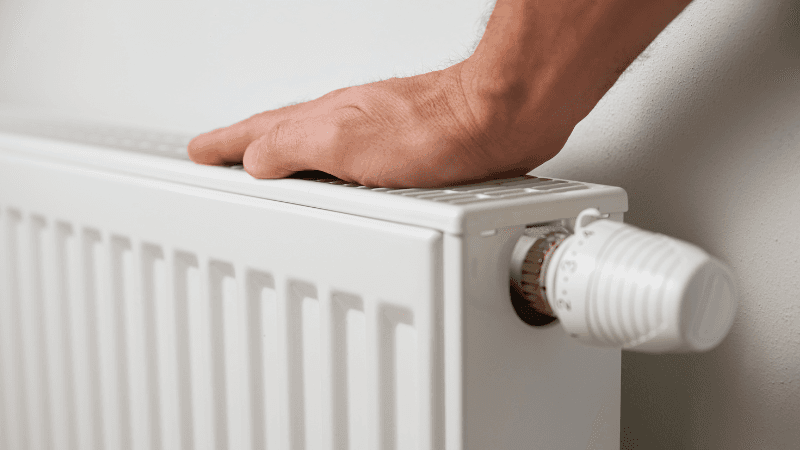Can renewables keep your house warm over winter?

The uptake of renewables is growing year on year due to greater awareness of carbon emissions and huge improvements in renewable technologies. 2020 was the the first year that renewable energy overtook fossil fuels in the amount of energy provided to the UK’s grid. Renewables generated 43% of the total demand compared to the 38% produced by more conventional fuels, this is a clear indicator of the direction that British energy production is headed. Amongst homeowners thinking about making the switch to low-carbon energy sources, a recurring concern is that their home won’t be adequately warmed over the winter months. In previous decades this might have been a concern, however this has been overcome by huge improvements in technology that allow for green energy production in adverse weather.
Solar Power
Since 2010, the price of solar panels have dropped by an incredible 60%, meaning that more homeowners than ever have made the switch. More solar energy is now being captured in the UK than anywhere else in Europe except for Germany and Italy. Considering the weather that we all know the UK to be famous for, this could come as a surprise for many. The reason is that photovoltaic panels operate based on daylight (not heat) and aren’t restricted to working in direct sunlight only. Therefore, solar panels can still operate on cloudy and cold days, just with a reduced efficiency. This means that your solar panels would still be creating power throughout winter, just less than during summer. Another consideration with solar power is the need for energy storage so that you can have power and heating even when the panels are in the dark and unable to generate electricity.
To learn more about panel requirements and carbon savings for different size homes, read our guide here.
Air and Ground Source Heat Pumps
Heat pumps generally receive much less coverage than solar panels or wind power and for this reason they’re often overlooked during home improvement projects. Despite generally having a larger installation cost than solar panels, heat pumps provide a lot more energy security around the clock, year-round. Not only are heat pumps able to operate in temperatures approaching -25°C, they also benefit from reduced running costs. Because the heat-output temperature of heat pumps is low, this increases the energy efficiency of the system. The practical consequence of this is that you can leave your heat pump running 24 hours a day for an unchanging home temperature. Around the clock heating would be expensive by classical heating standards but heat pumps have been built to use their efficiency as a tool to improve your home comfort.
The ambient temperature affects heat pump efficiency as it reduces the amount of latent heat that can be extracted from the surroundings. Air source heat pumps are affected more by changing seasons than their ground source counterparts; however, they can still provide heating even in the peak of winter. This reduction in efficiency will only be noticeable within your home by the fact that your thermostat might average 18 or 19 degrees on an especially bitter day compared to the usual 21 or 22 degrees that might be your usual preference. All these concerns will be addressed and explained to you through a free discussion with one of our heating engineers who can give you advice tailored to your home.
Ground source heat pumps are a more consistent renewable energy source than their air source counterparts. By fitting pipes called ground loops 1 – 2 metres below your garden, or installing a borehole, the heat pump will take advantage of the temperature below-ground as this is affected much less by seasons. It’s for this reason that heat pumps are more consistent in winter than solar panels because these are dependent on daily weather. In hotter climates, ground source heat pumps can also have the added benefit of offering a cooling feature during the hotter summer months. By pumping heat out of your home, this prevents the need to buy additional equipment and streamlines your home thermostat, yet this feature is rarely installed in the UK due to a lack of necessity.
Conclusion – are renewables effective throughout winter?
Heat Pumps – With the ability to extract heat from the air in temperatures of -25°C, these systems are more than capable of dealing with the relatively mild winters that the UK experiences. Far from leaving your home to freeze, you home might be a few degrees colder than the summer temperatures, but you’ll never have to ‘wait for the heating to come on’ because it’ll never turn off!
With the highest rate of usage in Europe, Sweden leads the way in ground source heat pump installations. For these to have excelled in such an environment shows the durability of these systems in extreme temperatures. The expertise and innovation of heat pumps in Sweden is another reason why we’re proud to only fit Swedish based Nibe’s heat pumps for our customers.
Solar Power – Solar panels are inherently limited by the hours of daylight received daily, meaning that they are always going to be affected by the reduced hours of light over winter. Despite this, they’re still able to provide energy throughout winter but the feasibility of relying purely on this system will depend on the overall capacity of the solar panels you’ve installed. If your panels are only just meeting your summer energy requirements, then they would be insufficient during the darkest winter months. However, this can be avoided if you’re producing a surplus of energy over the summer months – a feature that can still be profitable if the excess is being sold back to the grid. Despite the government ending their feed-in tariff scheme, the smart export guarantee was launched on the 1st of January 2020 and means that suppliers such as Octopus are still offering payment for excess energy supplied to the grid.
Regardless of the features of your home, there can be a renewable solution for most buildings that will offer heating security all year. Get in touch with our heating engineers who will be happy to advise you on the best approach for your home.


